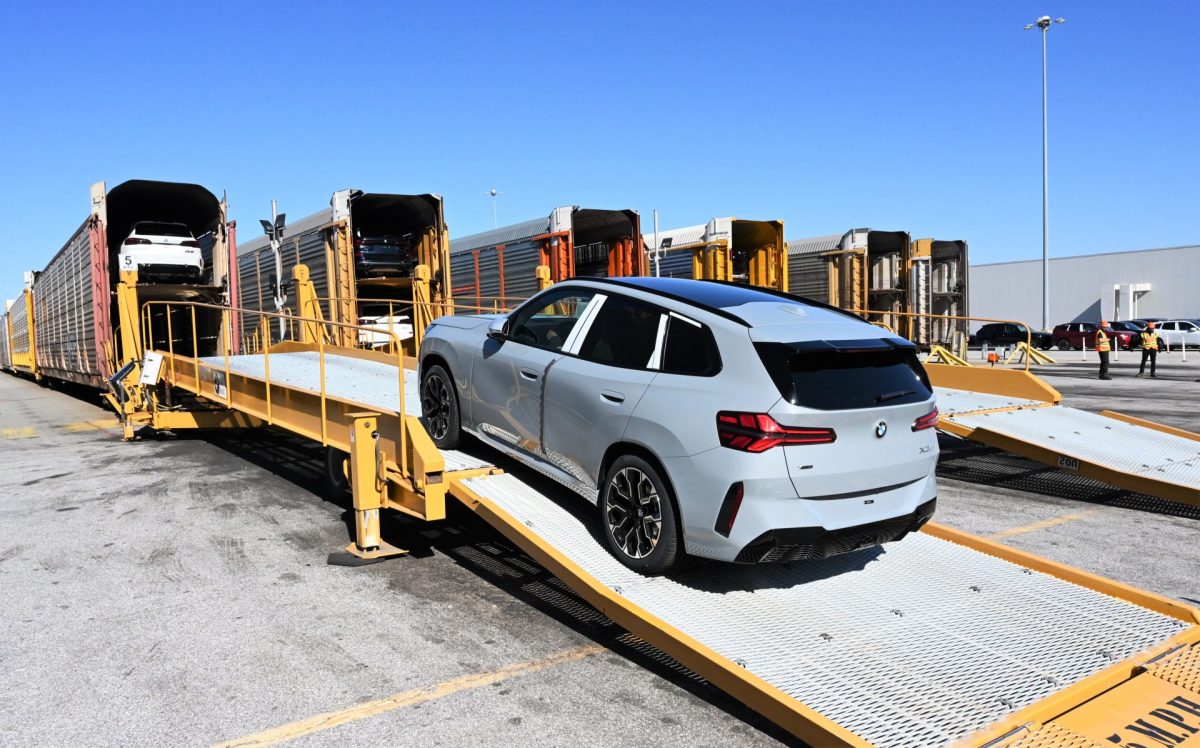Trump’s policies might not be as beneficial to automakers as he envisions
During an event commemorating the launch of the redesigned Expedition SUV at Ford’s Kentucky Truck Plant on April 30, Ford CEO Jim Farley said that the Blue Oval still wants lower tariffs on imported car parts while also praising the changes that President Donald Trump made to help automakers and their customers.
On April 29, ahead of an event in Michigan, President Trump signed two executive orders lowering the impact of trade tariffs. One prevents automakers that will pay 25% tariffs on auto imports from being affected by other levies on materials. At the same time, another allows automakers to apply for tariff relief that knocks off a small portion of the cost of their imported components. However, those benefits will be phased out over the next two years.
During the rally that night in Michigan, Trump characterized this move as “a little flexibility” to the automotive industry and aimed to convince automakers to make their cars and their components in the United States. “We gave them a little time before we slaughter them if they don’t do this,” he said. “They’re going to make so much money. They’re going to have so many jobs.”
View this post on Instagram
Despite the praise, Farley still believes more work needs to be done in order for the industry and the President to see eye-to-eye. “The changes this week on tariff plans will help ease the impact of tariffs on automakers, suppliers, and consumers,” Farley said. “We need to continue working closely with the administration on a comprehensive set of policies to support our shared vision of that healthy and growing auto industry. And we are not there yet.”
Ford wants to be credited for its exports
A major chunk of Ford’s business involves the export of certain cars from its factories in the United States to other international markets. Recently, it halted the export of some high-ticket models to China, including the F-150 Raptor, Mustang, and Bronco, as well as the Lincoln Navigator, over concerns primarily stemming from retaliatory tariffs on imported vehicles as high as 150%.
Despite this, Farley wants automakers like Ford to get credit for building cars in the United States that are shipped overseas for international consumption, noting that it is “essential” that the federal government enact policies that encourage manufacturers to build cars for export, adding that it exports nearly as many vehicles as its brings in.
“So many of the vehicles we build here are exported around the globe,” Farley said. “Shouldn’t we get credit for that?”

BMW
Final thoughts
I do not disagree with Farley’s idea. I genuinely believe that a policy, scheme, or program encouraging automakers to build in the U.S. for export could help other automakers besides Detroit’s Big Three.
In February this year, BMW released a report stating that U.S. Department of Commerce data showed it was the leading automotive exporter by value in the United States in 2024, as it exported nearly 225,000 X3, X4, X5, X6, X7, and XM vehicles from its Spartanburg plant for a total of $10.1 billion. The automaker also claims that since 2014, it has exported more than 2.7 million vehicles, or 63% of its total production, with an export value of more than $104 billion.
BMW isn’t the only manufacturer that exports cars from its U.S. factories. Toyota, Honda, Mercedes, and Tesla can also benefit from this program alongside the Detroit Big Three. We can only wait and see if such a policy becomes a reality or if it will forever live inside the minds of CEOs.